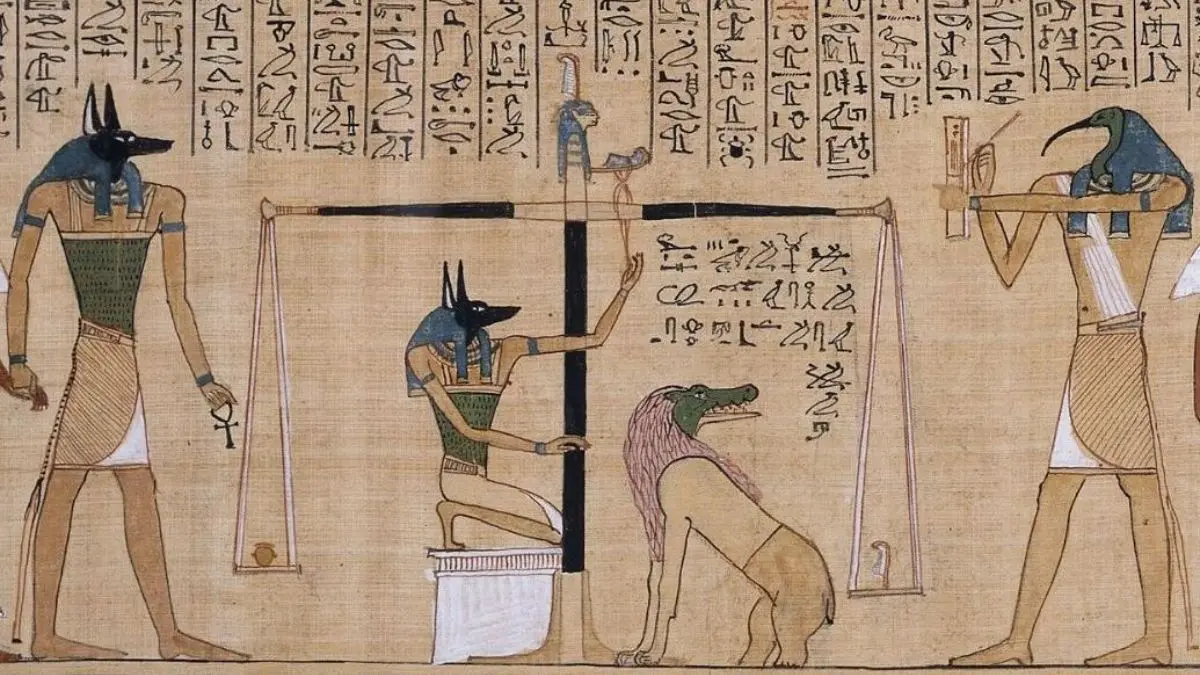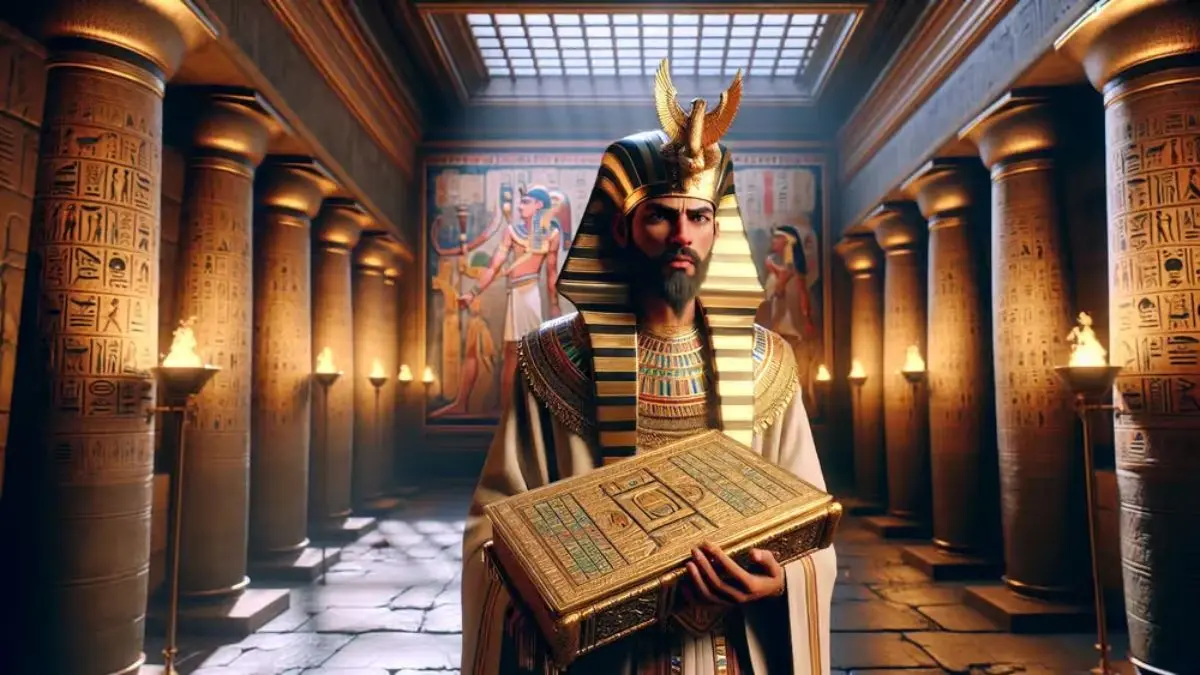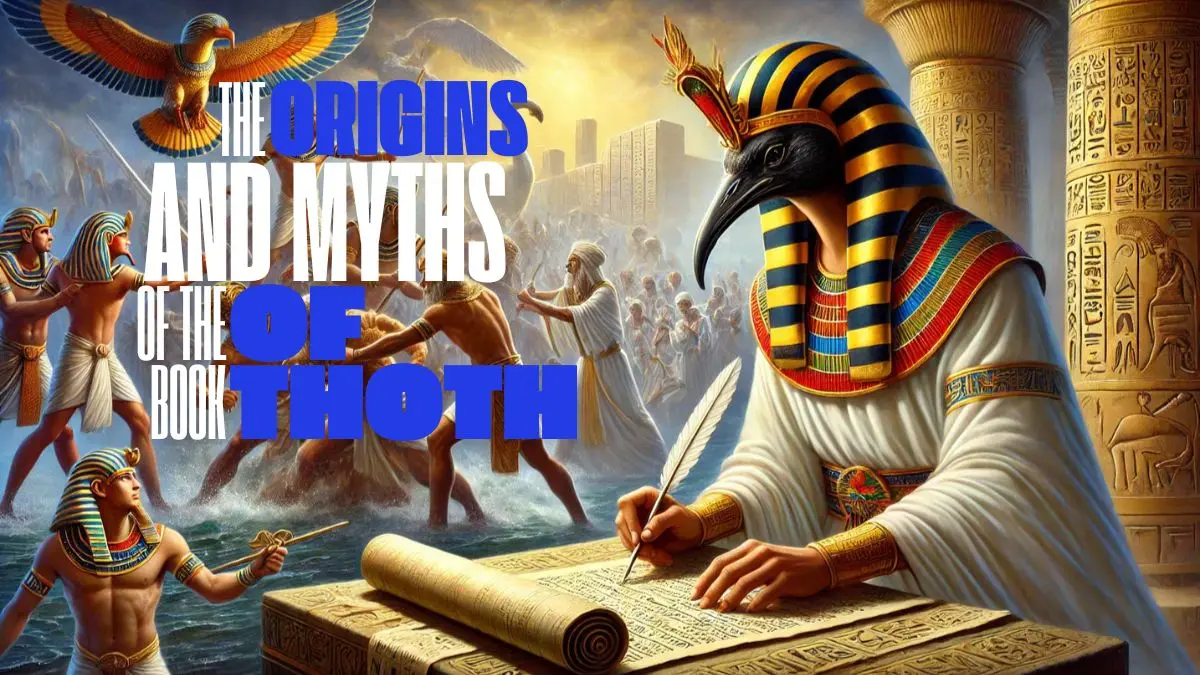The Book of Thoth is one of the most enigmatic and mysterious artifacts in mythology, often shrouded in tales of forbidden knowledge, magical power, and divine wisdom. It has captivated the imaginations of mystics, scholars, and storytellers for centuries. Rooted in Egyptian mythology, the Book of Thoth is attributed to the deity Thoth, the god of writing, wisdom, and the moon. While its physical existence is debated, the legends surrounding it have been widely explored. This article dives deep into the origins, myths, and cultural significance of the Book of Thoth.
Who is Thoth?
To understand the Book of Thoth, it’s essential to first understand Thoth, the god it is named after. In ancient Egyptian mythology, Thoth was a deity of immense importance. Often depicted as a man with the head of an ibis or a baboon, Thoth was the god of wisdom, writing, science, and magic. He was credited with creating hieroglyphs and acting as the divine scribe, documenting the actions of gods and humans.
Thoth’s association with writing and knowledge naturally positioned him as the custodian of sacred texts. The myths suggest that Thoth wrote several divine Books containing the secrets of the universe, the most famous of which is the Book of Thoth.
Origins of the Book of Thoth
The Book of Thoth is often described as a sacred and forbidden text that contains unparalleled wisdom. Its origins are rooted in Egyptian myth, but its legend has transcended cultures, blending into Greek, Roman, and even esoteric traditions.
1. Egyptian Mythology
In Egyptian lore, the Book of Thoth is said to have been written by Thoth himself. According to legend, the book contained:
- Spells that allowed one to communicate with animals.
- Knowledge of the gods.
- The secrets of the universe.
- Instructions to achieve immortality.
One of the most intriguing aspects of the Book of Thoth is its danger. The Egyptians believed that reading the book would grant a person immense power but at a great cost. It was said that anyone who accessed its secrets would face divine punishment, often in the form of insanity or death.
2. The Tale of Setne Khamwas
The most famous Egyptian tale about the Book of Thoth comes from the Demotic Egyptian Story of Setne Khamwas, a narrative dating back to the Ptolemaic period (circa 4th century BCE). Setne Khamwas, a prince and magician, discovers the existence of the Book of Thoth and becomes obsessed with obtaining it.
According to the tale:
- The book was hidden in a tomb guarded by serpents and protected by divine magic.
- Setne steals the book but suffers dire consequences. The spirits of the dead torment him, and he experiences terrifying visions.
- Ultimately, he returns the book to its rightful place, realizing that the knowledge it contains is too dangerous for mortals.
This tale highlights the recurring theme in myths of forbidden knowledge and the arrogance of humans seeking divine wisdom.

Myths and Interpretations
The Book of Thoth has given rise to a multitude of myths, often evolving as different cultures encountered the story.
1. The Hermetic Connection
In Greco-Roman times, Thoth became associated with Hermes Trismegistus, a syncretic figure combining Thoth with the Greek god Hermes. This led to the rise of Hermeticism, a mystical tradition that emphasized hidden knowledge and spiritual enlightenment.
The Hermetica, a collection of texts attributed to Hermes Trismegistus, is sometimes linked to the Book of Thoth. While the Hermetica does not explicitly mention the Book of Thoth, the themes of divine wisdom and secret teachings echo the mythos surrounding it.
2. The Tarot and Occult Symbolism
The Tarot, particularly the Thoth Tarot deck designed by Aleister Crowley, draws inspiration from the legend of the Book of Thoth. Crowley, a 20th-century occultist, believed the Tarot encapsulated the wisdom of ancient Egypt and described the cards as fragments of the Book of Thoth.
In the occult world, the Book of Thoth is often viewed as a metaphorical source of esoteric knowledge. It represents the pursuit of hidden truths and the danger of misusing such power.
3. The Myth of Forbidden Knowledge
Across cultures, the idea of a forbidden text granting ultimate knowledge but at a cost is a recurring motif. The Book of Thoth is often compared to other legendary texts, such as:
- The Necronomicon in H.P. Lovecraft’s fiction.
- The Kabbalistic texts in Jewish mysticism.
- The Tablets of Destiny in Mesopotamian myth.
These parallels suggest a universal fascination with the idea that some knowledge is too powerful for humans to handle.
The Mystical Powers of the Book
According to various myths, the Book of Thoth granted its reader extraordinary powers:
- Understanding the Speech of Animals: The book allegedly contained spells that allowed communication with all creatures, reflecting Thoth’s role as a mediator between different realms of existence.
- Mastery of the Elements: Some stories claim the book contained secrets to controlling nature, such as summoning storms or parting the waters.
- Resurrection and Immortality: It was said to hold the key to eternal life, though achieving this often came at a great cost.
However, these abilities were not without risk. Legends emphasize that attempting to use the book’s magic without divine approval would lead to catastrophic consequences.
Modern Interpretations
The Book of Thoth continues to inspire writers, artists, and mystics. It is often seen as a symbol of humanity’s unending quest for knowledge and the ethical dilemmas that arise from it.
1. In Literature and Pop Culture
The Book of Thoth has appeared in numerous works of fiction, often as a mysterious artifact with dangerous powers. It serves as a narrative device to explore themes of ambition, hubris, and the consequences of seeking forbidden knowledge.
2. In Esotericism and Magic
Modern occult practices occasionally reference the Book of Thoth as a metaphor for the ultimate repository of spiritual wisdom. The Tarot, as mentioned earlier, is one of the most well-known tools associated with its mythos.

Conclusion
The Book of Thoth, whether it existed as a physical object or remains a metaphorical construct, continues to captivate the human imagination. Its myths reflect deep philosophical questions: How far should one go in the pursuit of knowledge? What are the ethical limits of power? And can mortals ever truly grasp the divine?
In Egyptian mythology, the Book of Thoth was not just a text; it was a test. It symbolized the delicate balance between knowledge and wisdom, power and responsibility. The cautionary tales surrounding it remind us that some mysteries may be best left unexplored. Yet, the allure of the unknown ensures that the legend of the Book of Thoth will endure for generations to come.
Also Read: Excalibur: A Deep Dive Into King Arthur’s Iconic Weapon



